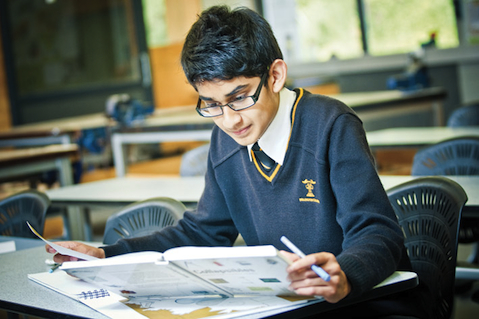Critical literacy
Understanding the languages, texts, and literacy practices of each learning area is related to understanding how knowledge is constructed and used in each learning area. There is a clear link between subject-specific literacy and critical literacy. Critical literacy involves learners and information users in:
- questioning how knowledge is constructed and used
- investigating whether the writer has the authority to speak for a group or position or to tell particular stories
- considering how power relationships are established and whether a text includes or excludes particular readers or perspectives
- examining the ways in which texts can position a reader.
References
- Brian, J. (1991). Tomorrow Is a Great Word. Flinders Park: Era Publications.
- Darr, C. and Fisher, J. (2005). “Self-regulated Learning in Mathematics Classes”. Set: Research Information for Teachers, no. 2, pp. 44–49.
- Gee, J. (2008). Social Linguistics and Literacies: Ideology in Discourses, 3rd ed. London: Routledge, Taylor and Francis Group.
- McDowall, S. (2010). Literacy Teaching and Learning in e-Learning Contexts. Wellington: Ministry of Education.
- New London Group (1996). “A Pedagogy of Multiliteracies: Designing Social Futures”. Harvard Educational Review, vol. 66 no. 1, pp. 1–20.
- Scieszka, J. (1996). The True Story of the Three Little Pigs. New York: Penguin.
Useful resources
NZCER Assessment Resource Banks
The English and science banks each include literacy-related content.
School Journal Teacher Support Materials
Some support materials draw particular attention to text features and challenges that are related to learning areas and suggest follow-up activities consistent with practices in these learning areas, for example:
- “Crocodile Crèche” (School Journal, 2010, part 1 no. 3) – science
- “The Goldilocks Story” (School Journal, 2010, part 1 no. 4) – English
- “Where No Boat Could Live” (School Journal, 2010, part 3 no. 3) – technology and social sciences.
Learning the languages, texts, and literacy practices of English
Rachel found that her year four students needed to learn how to use evidence from a text, together with prior knowledge, to form, defend, evaluate, and challenge interpretations of the text. She set up a literature circle to help them build these skills.
Rachel explicitly taught the roles to be used in the literature circle. For example, she took on the questioner role to model how to ask open questions that could generate multiple interpretations. In the following weeks, Rachel supported students to ask such questions by giving them further instruction, modelling, and feedback.
Rachel also provided explicit instruction on how texts position readers (critical literacy). She used The True Story of the Three Little Pigs (Scieszka, 1996) to demonstrate how there is always more than one possible reading and that stories are never neutral but told from particular positions. The challenge for Rachel’s students was to decide whether “A. Wolf” (as portrayed in his retelling of the story) really is the victim he makes himself out to be.
Rachel increasingly provided opportunities for her students to take responsibility for the literature circle roles. The circle read a series of texts, posted responses (from the perspective of their roles) on the class wiki, and engaged in extended dialogue about their different interpretations.
Students learned to use their prior knowledge and evidence from the text to make meaning. One applied his experiences of being in an earthquake to interpret the feelings of the main character in Tomorrow Is a Great Word (Brian, 1991). Another compared the failure of the main character’s parents to return home after the earthquake with a similar story she had seen on the news. Another related the theme of fear to an earlier text the circle had analysed.
By the close of the project, students recognised the importance of not taking texts, or their peers’ interpretations of them, at face value and of taking time to consider different perspectives:
You have to look everywhere [for evidence]. You have to ask people. You’re asking people what their reason is and it’s challenging for you cos you’re trying to figure out which answer you think is the correct answer.
We think and discuss. We didn’t used to discuss what the answer is, and with this ... we actually have to sound it out with people.

